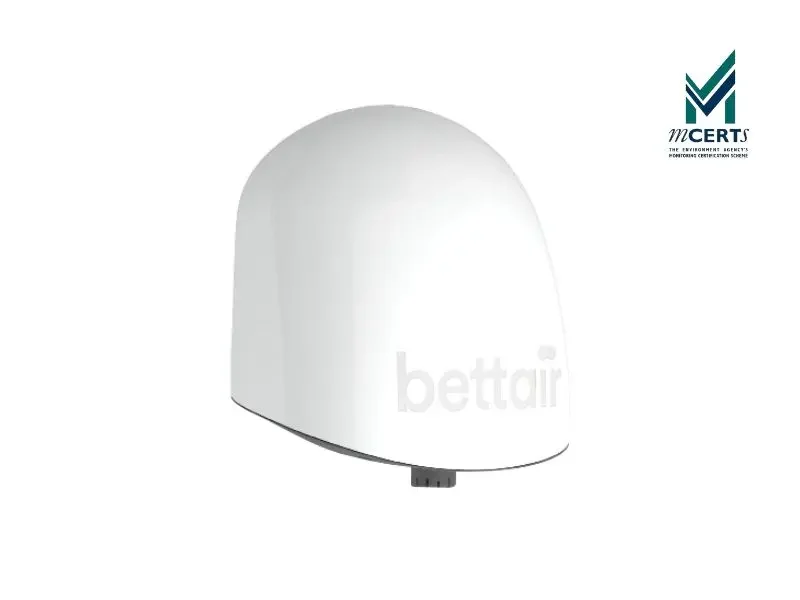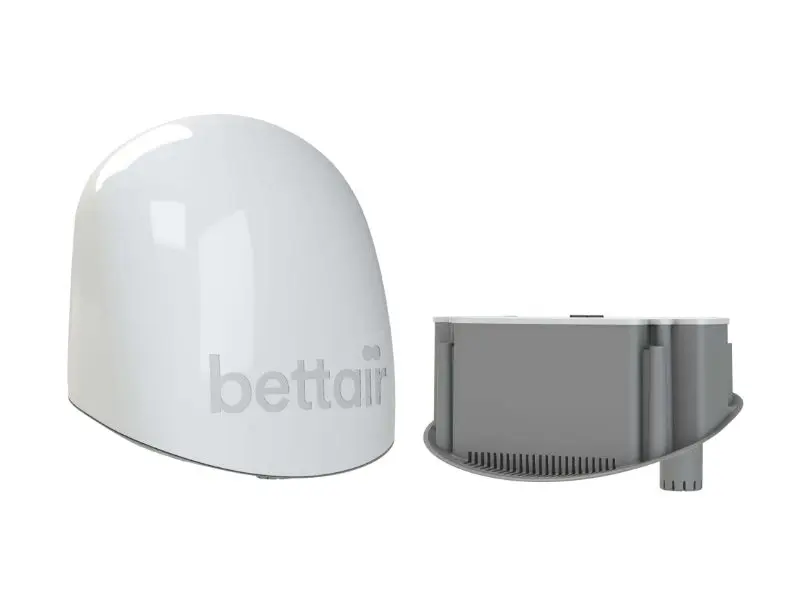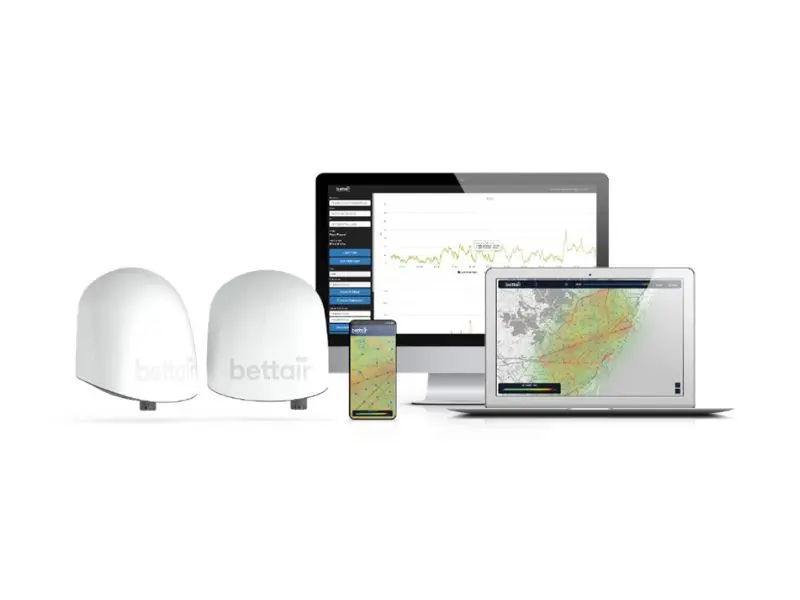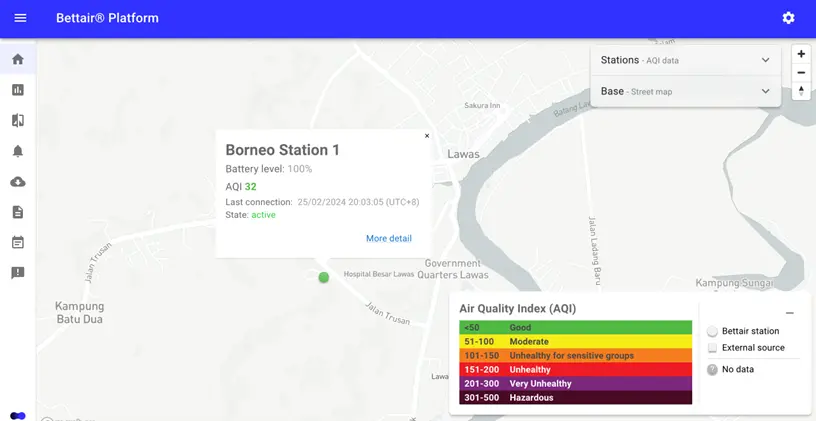How it works
Measure several air quality indicators including NO₂, NO, CO, O₃, SO₂, H₂S, CO₂, PM₁₀, PM₂.₅, PM₁.₀ as well as ambient noise level and other environment parameters
The accuracy of the measurements provided by the bettair® static node is based on advanced proprietary algorithms that enable parts per billion (ppb) measurements with similar accuracy than traditional air quality monitoring stations but at a fraction of the price. The algorithms compensate for the impact of the different ambient conditions as well as sensor degradation due to ageing. This removes the need for costly gas sampling and maintenance equipment.
Servicing
Contact us for servicing information.
Data sheets and specifications are subject to change, and Enviro Technology cannot be held responsible for inaccuracies in manufacturer-issued data sheets. To confirm specifications and obtain the latest issue of the data sheet, please contact us.
Product FAQs
Find answers to frequently asked questions about this product.













